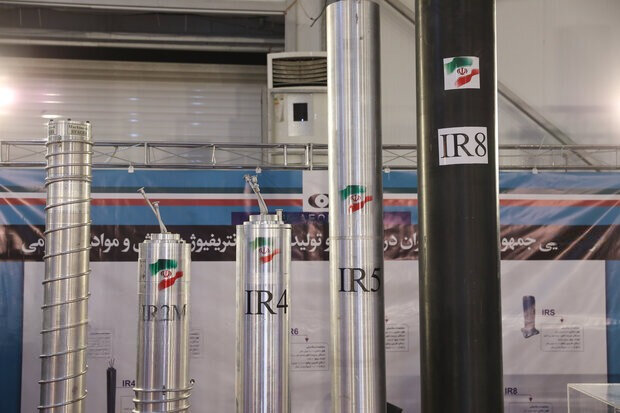MADRID – In a speech delivered on the 36th anniversary of the death of Imam Khomeini, founder of the Islamic Republic of Iran, the founder of Ayatollah Seyed Ali Khamenei, the leader of the Islamic Revolution, Iran’s position on the recent US nuclear proposal has become undeniably clear.
“The (nuclear) proposal presented by the Americans is completely contrary to the ideals of the Islamic Revolution,” he firmly declared.
The statement came amid rising tensions after five rounds of indirect negotiations between Tehran and Washington. The US has insisted on a “zero enrichment” request from Iran. This is a proposal that is not only infeasible from an Iranian perspective, but also contradicts existing international law.
Iran has been a signatories of the Nuclear Non-Proliferation Treaty (NPT) since 1968, ratifying it in 1970 and explicitly recognizes its right to develop a nuclear program for peaceful purposes. This right is not a whim, but an international legal obligation, an essential tool for scientific technological development and ensuring the well-being of the population’s energy. In a world where fossil fuels are exhausted and energy transitions are a global priority, countries like Iran not only denies countries like access to private nuclear technology, but they are counterproductive.
Private nuclear energy represents an important and efficient alternative to traditional energy sources. Therefore, the ability to produce nuclear fuel is understood by Iran as a fundamental necessity that is a fundamental component of its sovereignty and political autonomy. In Ayatollah Khamenei’s own words, “Even if we have 100 nuclear power plants, it’s useless to us without uranium enrichment. Without enrichment, we need to reach out to the US, and they need to impose some conditions on us.”
This message of stiffness coincided with the formal presentation of the US proposal through Oman. Iran has announced that it will respond based on “its basic position” and “the interests of its people.”
International legal framework and Iran’s nuclear program
Iran’s nuclear program is being developed within a well-defined regulatory framework. Iran is in compliance with the provisions of international law, complies with multilateral treaties and agreements such as the NPT, comprehensive protection agreements and additional protocols, all under strict supervision by the International Atomic Energy Agency (IAEA).
The NPT rests on three fundamental pillars: peaceful use of nuclear energy, non-proliferation of nuclear weapons, and progressive nuclear disarmament by states that own such arsenals. As a nuclear-weaponless state, Iran calls for the development of atomic weapons, but nuclear-armed states have an obligation to cooperate in peaceful development and advance disarmament.
After participating in the NPT, states will negotiate specific safeguards and contracts with the IAEA to regulate inspections and control of nuclear materials. A comprehensive safeguard agreement provides a fundamental framework, but the scope of activities and testing will vary depending on the size and nature of the country’s nuclear programmes.
In Iran, the contract requires that all nuclear material be reported to the agency the amount, type and location. The IAEA supervision is continuous and detailed, disproves recurring charges of Iran’s hidden secret activities. Iran’s compliance with these safeguards has been repeatedly verified.
Important perspective: Disciplinary logic
However, disputes between the United States and its allies go beyond mere legal compliance. Here is the disciplinary logic that scholar Jasbir Puar analyzed in his research on power and global control. Poor explains how certain states are exposed to regimes of surveillance, sanctions, and control to discipline them through restrictions on sovereignty, not only politically or economically but symbolically.
This selectively applied global discipline aims to deny internationally recognized Iran under the guise of security. The reality is that it is an attempt to control Iran’s sovereignty and maintain its energy and technical dependence. The “zero enrichment” demand is not an objective threat, but rather a geopolitical interest designed to preserve Iranian subordinates.
From this perspective, Iran’s civilian nuclear programme is a symbol of resistance to an international system that punishes those who challenge hegemonic order and punishes them. The US claim to limit Iran’s enrichment rights reflects the logic of power that operates through exclusion and selective criminalization.
As Puar explains, this disciplinary logic creates a double standard that justifies some states, while limiting others’ access to civilian nuclear technology and justifying interventions and sanctions in the name of global security.
Energy rights as a matter of justice and development
Far from a threat, private nuclear energy is an essential resource for Iran’s sovereignty and sustainable development. The country has the right to protect the energy security of its population and diversify its energy sources amid the global climate crisis and growing demand.
This right to deny Iran perpetuates an international system of inequality that allows some countries to monopolize advanced technology, while others are dependent and vulnerable. This is an important point for understanding current diplomatic conflicts.
Ultimately, Iran’s right to develop civil nuclear programs is supported by the fundamental principles of international law and sovereignty and global justice. An attempt to cut back some of the disciplinary strategies that not only contain Iran, but also to maintain a hierarchical and exclusive international order.
The debate over Iran’s nuclear program cannot be understood only from a security standpoint. We need to consider the resistance of countries defending sovereignty against international law, energy justice, and the pressure of hegemony forces that apply different rules according to their interests.
Within the legal framework, uranium enrichment is an intransferable right to Iran, and its defense is a legitimate claim to a global order that operates through a disciplinary logic that perpetuates inequality and subordinateity, as Jasbil Poor insightfully analyzes. Recognizing this right ultimately means acknowledging the ability of people to determine their development and happiness.

